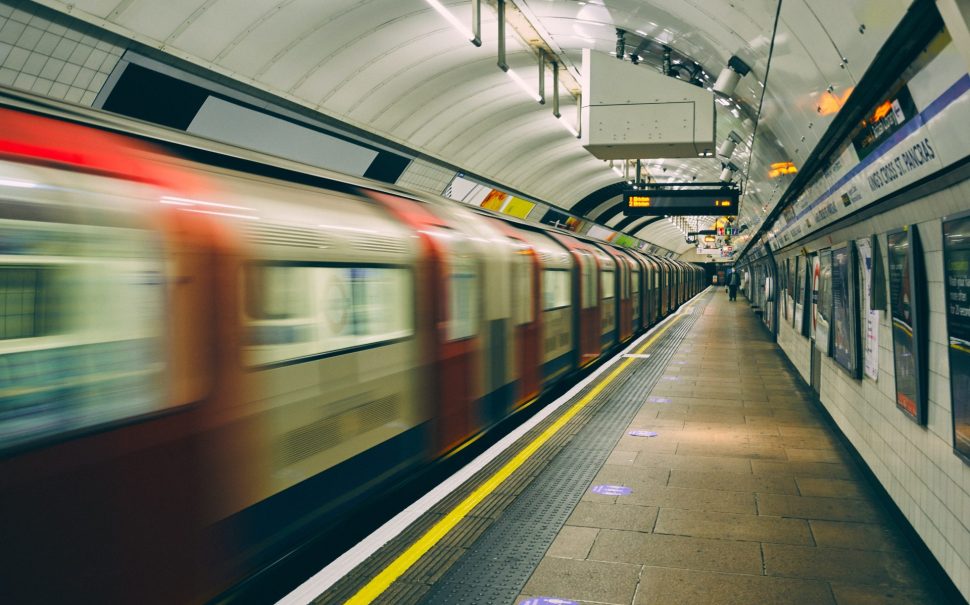Train commuting in London costs workers more than a fifth of their monthly salaries, new data has revealed.
Charities are urging the government to freeze the soaring rail fares to tackle the surge in expenses and the impact on employee incomes.
While hybrid working has been widely adopted since the start of the coronavirus pandemic, those obligated to return to the office will now face higher costs and increased time away from home.
Michael Solomon Williams, from the advocacy charity Campaign for Better Transport said: “Spending up to a fifth of your salary on commuting is simply unacceptable.
“We need more affordable rail fares to ensure people can get to work sustainably and continue to support our urban economies.
“The Government has helped out motorists by freezing fuel duty for the past 13 years, it’s time it did the same for rail passengers and froze rail fares for next year.”
Data from business management software specialists ECI’s ‘Cost of Commuting’ report looked at the cost of trains, parking, available remote and flexible jobs and coffee expenses in the 20 most populous cities in the UK.
Train commutes to London have been revealed as the most expensive option, with the average ticket costing £42.60, equivalent to a staggering 22.31% of regular monthly earnings.
In other top-ranking cities, train commuting to Edinburgh costs 15.82% of employee salaries.
While the slightly more cost-effective city Hull impacts 15.10% of monthly earnings.
Sheffield is the most budget-friendly option, with a daily ticket priced at £11.80, accounting for 7.82% of monthly incomes.
Overall, train prices in England have continued to rise yearly, with figures showing a 5.7% increase in March 2023, according to rail fare data from the Office of Rail and Road (ORR).
In December, the Department for Transport (DfT) announced that regulated train fares, including season tickets, select off-peak returns and flexible tickets in England will be capped at 4.9% until March.
Last year’s July Retail Price Index (RPI), which measures inflation of goods and services, was 9.0%.
The previous cap on increased train fares was 5.9%.
Transport Secretary Mark Harper said: “Having met our target of halving inflation across the economy, this is a significant intervention by the Government to cap the increase in rail fares below last year’s rise.
“Changed working patterns after the pandemic mean that our railways are still losing money and require significant subsidies, so this rise strikes a balance to keep our railways running, while not overburdening passengers.
“We remain committed to supporting the rail sector reform outdated working practices to help put it on a sustainable financial footing.”
A return to the office
The number of employees working from home in the UK more than doubled between October to December 2019 and January to March 2022, rising from 4.7 million to 9.9 million people, as per data from the Office of National Statistics (ONS).
According to a report from Resume Builder, which surveyed 1,000 company leaders, 90% of companies are set to implement return-to-office policies by the end of 2024.
Emma Davies-Carolan, Vice President of Global Customer Marketing at ECI said: “Recently there has been a real push to bring offices back to pre-pandemic levels.
“With the current financial climate, this could be very expensive on top of household costs.”
She believes that as employees have become accustomed to hybrid working, there may be a resistance to investing in additional commute days.
These statistics highlight substantial consequences for employees who have to allocate significant portions of their monthly earnings to commuting.
Many have had to compromise on various aspects of their lives, including housing, leisure and other non-essential expenditures.
Research from the Rail Delivery Group, the British rail industry membership body, on customers’ travelling habits has revealed that 37% of current customers plan to use the railway more in the next three months, while just 9% expect to make fewer train journeys.
Collen Clark, Lawyer and Founder of Schmidt & Clark LLP said: “The increased commute costs to the office have become a significant concern for me.
“Commuting to the office is an essential part of my routine, and any increase in costs directly impacts my monthly budget.
“If the rising costs of commuting persist, it could potentially influence decisions about office locations, remote work policies, and even impact the ability of law firms to attract and retain top talent.
“In a profession where time is of the essence, any factor that hinders efficiency and productivity is a matter of concern.”
Rail recovery since the pandemic
Last February the Department for Transport (DfT) revealed that UK rail passenger numbers exceeded 100% of pre-pandemic levels for the first time since March 2020.
ORR data also indicates that there has been a consistent upward trend in rail passenger journeys since 2020.
In January to March 2020, 35 million rail passenger journeys were recorded in the UK, the lowest number on record.
The latest figures show that between July and September 2023, there were 397 million rail passenger journeys, marking a 1022% increase compared to the journeys recorded in 2020.
While still not quite at the directly pre-pandemic high of 460 million, it’s approaching those levels.
Alternate commute options
Rail travel is not the sole culprit denting worker’s wallets as the ECI report also analyses the most expensive cities to commute to by car.
Birmingham comes out on top, with a substantial 16.72% of their salaries being spent on car commute expenses.
In addition, a significant 14.80% of Manchester commuters’ salaries are devoted to covering the costs associated with car travel.
Surprisingly, London ranks as only the fourth most costly city for car travel, accounting for 13.22% of monthly salary earnings.
Among the top 10, Edinburgh has the lowest commute expenses, with only 11% of the average salary being spent on commuting.
Whilst Kingston upon Hull emerges as the cheapest city for car commuters, according to the analysis.
Reducing costs
Train operators, together with the government, have introduced initiatives aimed at offering cost-saving benefits to customers.
The Flexi Season tickets provide customers with eight days of travel within a 28-day period, allowing flexibility between two specified stations.
The Department for Transport has pledged that the tickets will save customers a minimum of 20% on the cost of a monthly season ticket.
Alternatively, railcards, can also be an economical choice, reducing ticket prices by up to a third.
Other alternatives include individual operator incentives such as loyalty schemes and Pay As You Go arrangements, outlined in the DfT’s industry’s post-pandemic strategy earlier this year.
A spokesperson for Rail Delivery Group, the British rail industry membership body, said: “Rail continues to play an important role in connecting people with their colleagues and it is essential for commuters.
“To reflect people’s changing travel patterns, it’s important that we offer new, more flexible ticketing options to choose from.
“Flexible season tickets are one example of this, as well as the expansion of Pay as You Go in London and the South-East.
“We will continue to focus on creating a simpler, better value fares system for our customers.”
A modernised approach
During the peak of the Covid pandemic, businesses embraced new technologies to overcome challenges and as a result, the technology sector played a pivotal role in steering a rapid national recovery towards economic prosperity.
Such investments have continued to yield significant benefits, including remote accessibility and flexible work solutions for hybrid workers today.
James Cunningham, Complete Health Optimisation Coach at Total Shape said: “Embracing technology has its perks, and it allows me to stay connected with my clients while avoiding the stress of lengthy commutes.
“Before the whole situation with increased commute costs, I used to enjoy the flexibility of my routine.
“Now, with these rising commute expenses, it’s been a bit of a game-changer for me.”
Featured image credit: Peter Bosch on Unsplash





